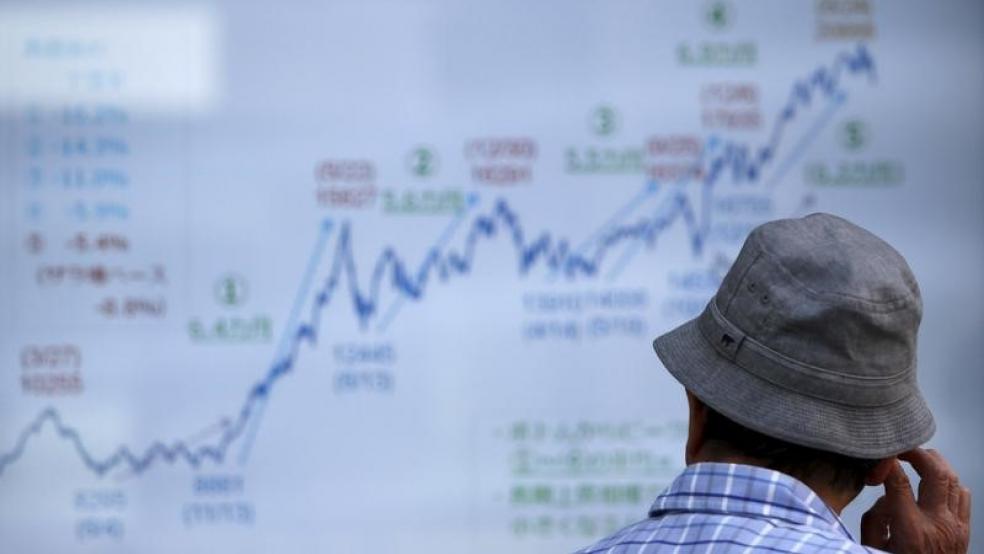NEW YORK (Reuters) - U.S. and European stocks declined on Monday as investors fretted about Greece and the timing of a U.S. rate hike, while bond yields rose and the dollar fell.
The U.S. currency extended its decline in the afternoon on skepticism about the American economy even after President Barack Obama denied a wire-service report that claimed to cite his remarks on the greenback's strength.Investors sold U.S. equities after Friday's strong jobs report heightened expectations for a Federal Reserve interest rate hike as soon as September. Several experts said markets would likely remain choppy ahead of a rate hike. The Dow Jones industrial average <.dji> fell 82.91 points, or 0.46 percent, to 17,766.55, the S&P 500 <.spx> lost 13.55 points, or 0.65 percent, to 2,079.28 and the Nasdaq Composite <.ixic> dropped 46.83 points, or 0.92 percent, to 5,021.63.Greece's bailout program also weighed on markets as it expires at the end of June and the country faces potential default on its debts.Greek officials met on Monday with European Union Economics Commissioner Pierre Moscovici on what reforms Greece must implement to get new loans, but there was no new proposal from Athens that its creditors could agree to, an EU official said.The uncertainty renewed demand from investors for lower-risk government debt, causing U.S. Treasury yields to fall, with benchmark yields retreating from seven-month highs."It really appears there's just not a deal happening there. The rhetoric is looking like we're really going to see a Grexit," Stephen Massocca, Chief Investment Officer, Wedbush Equity Management LLC in San Francisco referring to concerns that Greece will end up exiting the Euro zone.DOLLAR JITTERSThe dollar <.dxy> dropped more than 1 percent against a basket of major currencies, extending losses as the day went on, even after Obama denied a Bloomberg report, citing an unnamed French official, that he had called the strong dollar "a problem" in conversation at the Group of Seven (G7) summit in Germany.Despite the denial, currency investors were wary as U.S. Federal Reserve and other officials have recently expressed concerns about dollar strength's impact on growth and exports."A lot of people are quite skeptical that this payroll data we had on Friday is really a true reflection of how strong the economy is," said Jens Nordvig, global head of currency strategy at Nomura Securities International in New York."They think the price action we had on Friday was a bit too optimistic."The dollar index had risen 0.9 percent on Friday after the jobs report. On Monday afternoon it was still up 5.5 percent for the year-to-date after a 12.8 percent rise in 2014.Despite concerns about Greece, the euro gained 1.6 percent against the dollar, after a 1 percent gain in the prior week. The MSCI all world share index <.miwd00000pus> was down 0.2 percent. European shares <.fteu3> shed 0.9 percent even as shares in Germany's largest lender, Deutsche BankStocks fall on Greece, rate concerns; U.S. dollar dips

Yuya Shino



